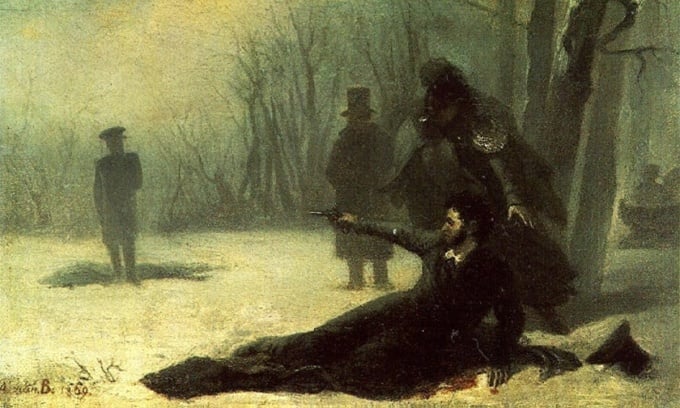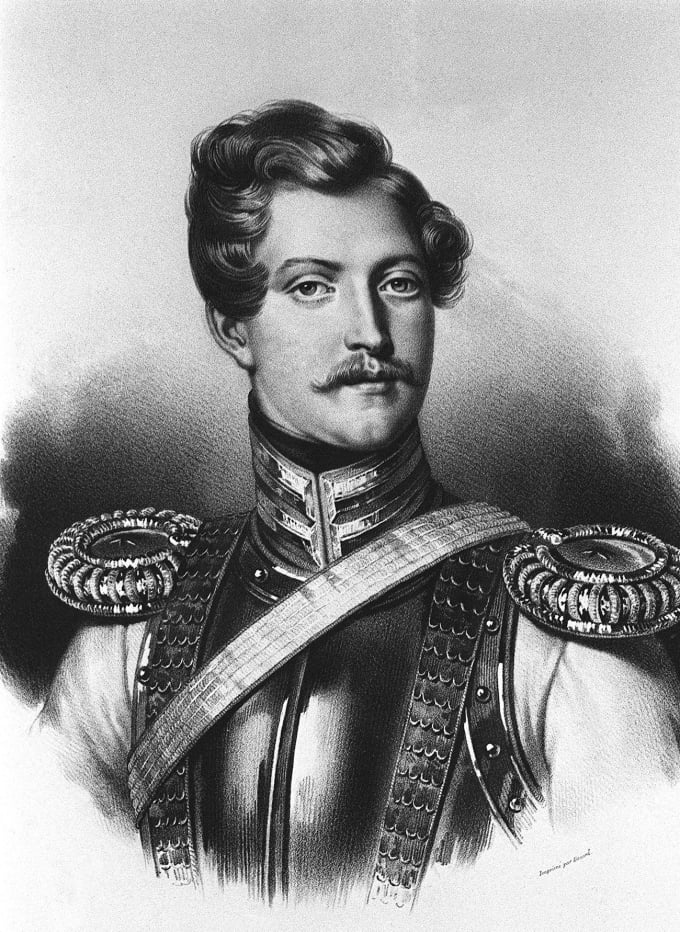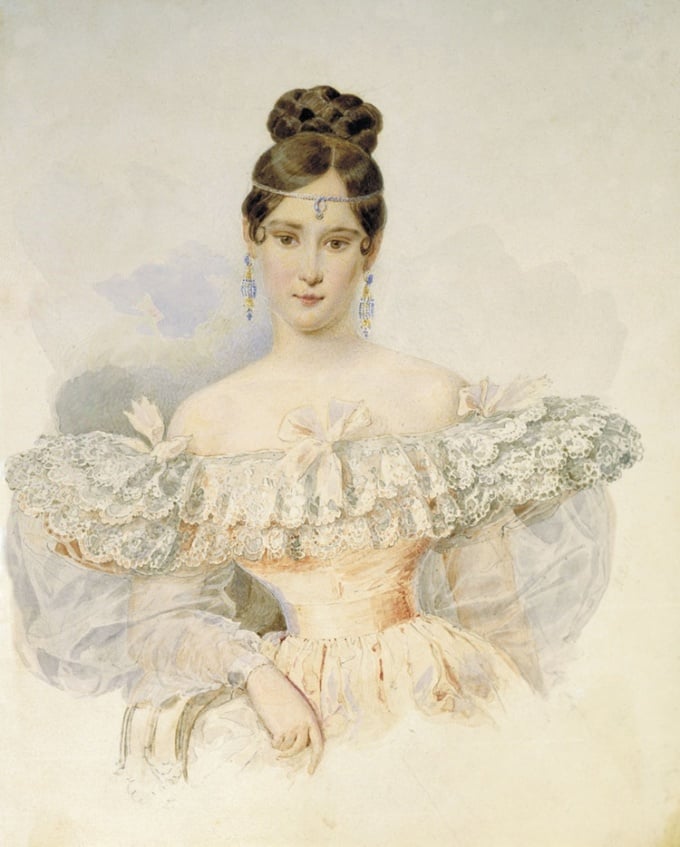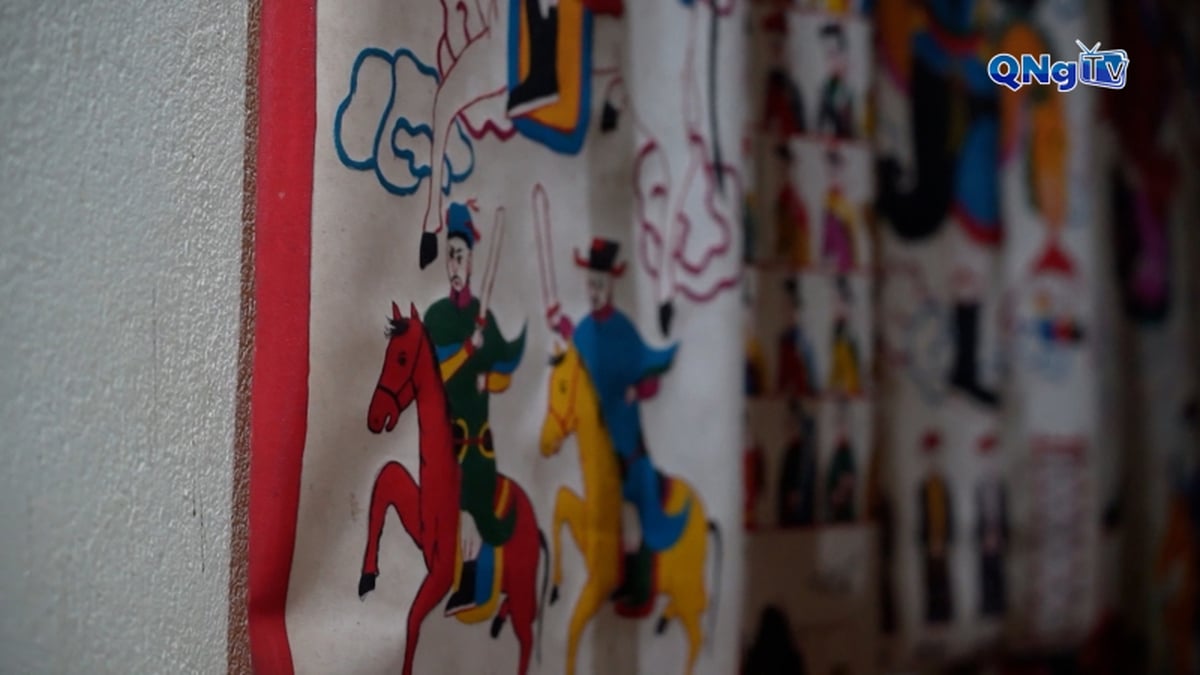Poet Pushkin participated in many duels and in the last one, he lost his life to the man rumored to be his wife's lover.
Alexander Pushkin was born in 1799 in Moscow into a noble family. He was a famous poet, writer, and playwright, honored as the great poet or the sun of Russian poetry.
During his life, he participated in many duels. Although illegal, these duels were very common in his era.
The philosopher Mikhail Seleznyov wrote in his biography of Pushkin that the great Russian poet fought 26 duels. However, historians have only been able to verify five such duels. In most cases, Pushkin and his opponent made peace or missed and then called off the duel. However, the duel in 1836 ended in tragedy.

The painting depicts the last duel of the great Russian poet Alexander Pushkin. Photo: Russia Beyond
The origins of Pushkin's final duel stemmed from rumors that his wife, Natalia Goncharova, was having an affair. In November 1836, an anonymous article was circulated, claiming that Pushkin was "cuckolded." Pushkin believed that the French officer Georges d'Anthès was his wife's secret affair.
Pushkin met Natalia in 1828 when she was 16 years old. She was one of the most famous beauties in Russia. After much hesitation, Natalia accepted Pushkin's proposal in April 1830 and the two were married in 1831.
Georges d'Anthès, born in 1812, was a cavalry officer under the French King Charles X. He was discharged when the king was overthrown. After the French government allowed d'Anthès to serve in foreign armies without losing his citizenship, he traveled to Russia, joining the Empress's cavalry guard. d'Anthès's ties to the Russian royal family and his good looks gave him access to the upper class in St. Petersburg, then the capital of the Russian Empire.

Georges d'Anthès, rumored to be the lover of Pushkin's wife. Photo: Russia Beyond
To defend his honor against the rumors, Pushkin challenged d'Anthès to a duel to the death. However, d'Anthès soon proposed to Ekaterina Goncharova, the sister of Pushkin's wife. The two became relatives, so the poet had to cancel the challenge.
But the rumors spread again after the wedding. The French officer was said to have married Ekaterina to cover up his affair with Natalia. This time, Pushkin thought they came from Baron Jacob van Heeckeren, the Dutch ambassador to Russia, and d'Anthès's adoptive father.
He wrote Heeckeren a highly critical letter, which angered the ambassador and his adopted son. Heeckeren declared that the original challenge still stood.
The duel took place at Chernaya Rechka, a suburb of St. Petersburg, and the terms were very harsh. In other European countries, duelists usually shoot at a distance of 25-30 paces, but in this case, the distance was only 10 paces. The first shooter had to stand still while his opponent fired his shot.
D'Anthès fired first and seriously wounded Pushkin in the abdomen. Pushkin fell to the ground but managed to fire back at his opponent, grazing d'Anthès' right hand. The poet died two days after the duel.
Dueling was banned in Russia, so it was always done in secret. The punishment for participating was severe, even death. On his deathbed, Pushkin tried to ask Tsar Nicholas I to pardon his assistant in the duel, Konstantin Danzas, through the Tsar's physician. Danzas was imprisoned for two months.
The Tsar tried to take care of Pushkin's family after his death. He paid off Pushkin's debts, ordered a one-time pension of 10,000 rubles for the family, provided support for his widow Natalia and her daughters, and took the poet's son as his personal attendant.
Tsar Nicholas I stripped d'Anthès of his military rank and banished him from Russia. D'Anthès left with his wife and four children. The officer reportedly said that being forced to leave Russia had helped him have a "brilliant political career" upon his return to France.
Some have suggested that Natalia was responsible for her husband's death, as she was unable or unwilling to put an end to rumours of an affair with d'Anthès. The poet Anna Akhmatova called her "Heeckeren's accomplice and adopted daughter in fomenting the duel".

Portrait of Natalia Goncharova, wife of the great Russian poet Pushkin. Photo: Wikimedia Commons
After World War II, two letters from D'Anthès from 1836 were published in Paris. In them, he described his infatuation with a girl as "the greatest masterpiece in St. Petersburg", writing that she felt the same way about him and that her husband was "fiercely jealous". However, the letters also said that she was not ready to "break her engagement" with her husband.
These letters remain controversial to this day. Some scholars believe d'Anthès did not write about Natalia, while others feel he was simply trying to quash rumors of his homosexual relationship with Baron Jacob van Heeckeren.
Vu Hoang (According to Russia Beyond )
Source link




















































![[Maritime News] More than 80% of global container shipping capacity is in the hands of MSC and major shipping alliances](https://vphoto.vietnam.vn/thumb/402x226/vietnam/resource/IMAGE/2025/7/16/6b4d586c984b4cbf8c5680352b9eaeb0)













































Comment (0)